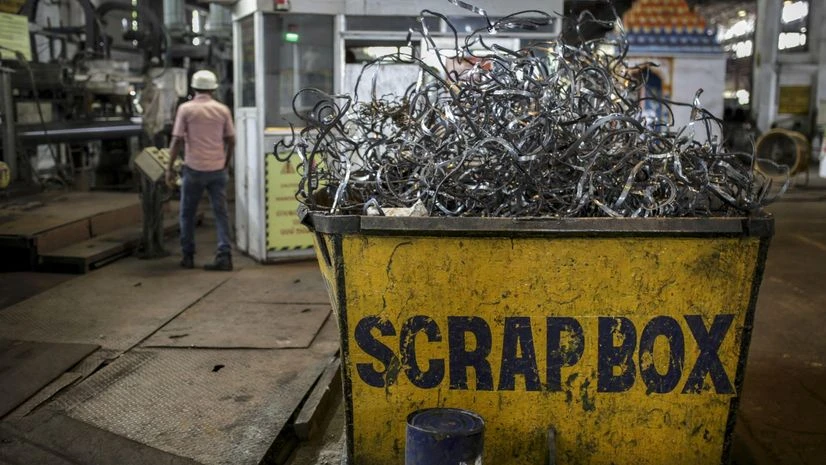Introduction To The Scrap Business
The Recycling Sector, Sometimes Referred To As The Scrap Business, Is Essential To The World Economy Because It Turns Waste Materials Into Useful Resources. The Scrap Business Deals With A Broad Range Of Items That Can Be Recycled, Reused, Or Repurposed For Different Sectors, From Metals And Plastics To Paper And Electronics. This Thorough Book Seeks To Provide Readers A Thorough Overview Of The Scrap Industry, Covering Its Importance, Workings, Market Dynamics, Effects On The Environment, And Business Potential.
Comprehending The Scrap Industry
What The Scrap Business Is Definitiond As:
• In The Scrap Business, Recyclable Materials—Also Referred To As Scrap—Are Gathered, Processed, And Traded In Order To Be Reused Or Remanufactured.
• Materials That Have Reached The End Of Their Useful Lives, Such As Electronics, Paper, Glass, Metals, Plastics, Textiles, And Other Materials, Can Be Considered Scrap Materials.
The Importance Of Recycling
• Recycling Is Essential For Preserving The Environment, Cutting Waste, And Lowering Carbon Emissions And Pollution.
• The Scrap Industry Supports The Circular Economy, Resource Conservation, And Sustainable Development Objectives By Recycling Scrap Materials.
The Scrap Business’s Operations
Gathering And Arranging:
• Gathering Recyclable Materials From A Variety Of Sources, Such As Homes, Companies, Factories, And Demolition Sites, Is The Initial Stage In The Scrap Business.
• Dumps Subsequently, Materials Undergo Sorting, Segregation, And Processing According To Their Quality, Composition, And Market Demand.
Reclamation And Processing:
• After Being Separated, Discarded Materials Go Through Recycling And Processing Steps To Get Them Ready For Repurposing Or Remanufacturing.
• Processing Methods Can Include Crushing, Melting, Granulating, Shredding, Or Refining, Based On The Kind Of Material And How It Will Be Used.
Sales And Purchases:
• Following Processing, Recycled Materials Are Sold And Sent To Mills, Manufacturers, Foundries, And Other End Users So They Can Be Used To Make New Goods.
• In The Scrap Supply Chain, Scrap Dealers And Brokers Are Essential For Facilitating Transactions, Settling Disputes Over Prices, And Overseeing Logistics.
The Scrap Business’s Market Dynamics
Variations In Price:
• Price Swings In The Scrap Market Can Be Caused By A Number Of Causes, Including Dynamics Of Supply And Demand, Commodity Prices, State Of The Economy, And International Trade Regulations.
• Scrap Material Prices Are Subject To Large Fluctuations Over Time, Which Can Negatively Affect The Profitability And Competitiveness Of Scrap Enterprises.
Demand In The Market:
• Industrial Sectors Like Construction, Automotive, Manufacturing, Packaging, And Electronics Fuel The Market Need For Scrap Materials.
• As Environmental Issues And Sustainability Become More Widely Recognized, There Is A Greater Need For Recycled Materials Across A Range Of Businesses.
The Scrap Business’s Effect On The Environment
Preservation Of Resources:
• Recycling Waste Materials Helps Preserve Natural Resources Like Metals, Minerals, And Fossil Fuels By Lowering The Need To Extract And Process Raw Materials.
• The Scrap Industry Helps To Save Resources And Save Energy By Recycling Materials To Increase Their Lives.
Reduction Of Waste:
• Recycling Assists In Rerouting Waste Products From Landfills, Lessening The Toll That Trash Disposal Takes On The Environment, And Lowering Emissions Of Greenhouse Gases And Pollution.
• The Scrap Business Emphasizes Material Reuse And Recycling While Minimizing Waste Output By Fostering A Circular Economy Model.
Prospects For The Scrap Industry
Enterprise Development:
• For People And Small Enterprises Interested In Launching Their Own Recycling Firms, The Scrap Industry Provides Entrepreneurial Potential.
• Value-Added Recycling Activities, Recycling Facilities, Scrap Trading Companies, And Scrap Collecting Services Are Examples Of Entrepreneurial Endeavors.
Technological Innovation:
• Technology And Innovation Are Essential To The Growth Of The Scrap Industry Because They Allow For Value Addition, Material Recovery, And Process Optimization.
• Entrepreneurs Have The Chance To Innovate And Create New Goods, Systems, And Technology For More Effective And Sustainable Recycling Methods.
Initiatives For A Circular Economy:
• Circular Economy Activities Are Becoming More And More Important To Governments, Organizations, And Companies In An Effort To Encourage Resource Efficiency, Waste Reduction, And Sustainable Consumption And Production.
• By Taking Part In Cooperative Projects, Alliances, And Innovation Hubs Aimed At Promoting Recycling And Circularity, Entrepreneurs Can Profit From Trends In The Circular Economy.
Obstacles And Things To Think About
Regulatory Adherence:
• Regulations And Environmental Standards Controlling Garbage Management, Recycling, And Workplace Health And Safety Must Be Adhered To By Scrap Enterprises.
• To Operate Legally, Scrap Firms Must Ensure Compliance With Legislation And Secure The Required Permissions And Licenses.
The Volatility Of The Market:
• Price, Demand, And Profitability In The Scrap Industry Can All Be Impacted By Economic And Market Instability.
• Scrap Businesses Need To Implement Risk-Reduction Techniques, Diversify Their Sources Of Income, And Adjust To Shifting Market Circumstances.
Summary
Through The Recycling Of Priceless Resources, The Scrap Industry Contributes Significantly To The Causes Of Resource Conservation, Waste Reduction, And Environmental Sustainability. The Scrap Industry Offers A Wide Range Of Operations And Business Prospects For Entrepreneurs, From Collection And Processing To Trade And Distribution. The Scrap Industry Can Address Global Environmental Concerns, Provide Economic Opportunities, And Help Construct A More Resilient And Sustainable Future By Embracing Innovation, Technology, And The Concepts Of The Circular Economy. The Scrap Industry Is Well-Positioned To Have A Significant Impact On Creating A More Environmentally Friendly And Sustainable Economy For Future Generations As Long As Sustainability And Resource Efficiency Remain Global Priorities.


)